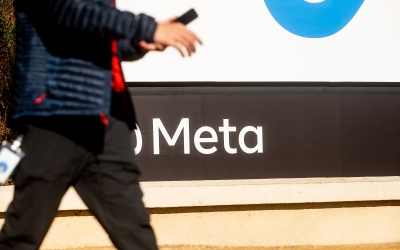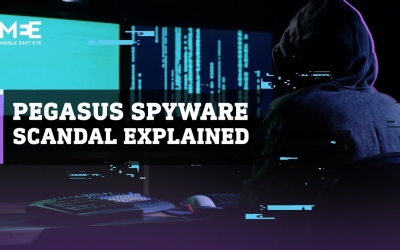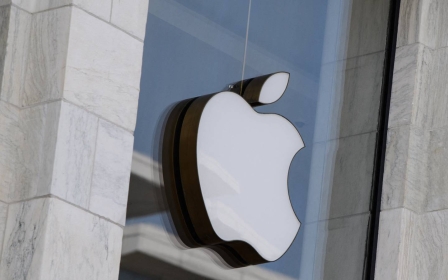Pegasus: Egypt's Ayman Nour had phone hacked by Israeli and European spyware

The phone of a prominent Egyptian opposition leader was hacked in two separate attacks by government-operated spyware, according to a report by the cybersecurity NGO Citizen Lab on Thursday.
Ayman Nour, the Istanbul-based leader of the liberal Ghad al-Thawra party, revealed in July that his phone was hacked using Pegasus, the surveillance software made by the Israeli NSO Group.
On Thursday, the Toronto-based Citizen Lab confirmed that Nour was targeted by both Pegasus and Predator, another software made by a Europe-based firm named Cytrox.
A former presidential candidate who ran against Hosni Mubarak in 2005, Nour is also a critic of Egypt's President Abdel Fattah el-Sisi and is one of Egypt's most outspoken opposition figures in exile.
In response to the Citizen Lab report, he told Middle East Eye that he accuses Egypt, Saudi Arabia and the United Arab Emirates of sponsoring the attacks. He said he is contemplating legal action in France, where his party is registered, in accordance with the French penal code.
Nour's party, in a statement sent to MEE, condemned "the involvement of the Egyptian, Saudi and Emirati regimes in these loathsome operations which contravene international law, human rights conventions, individual privacy, right to confidentiality of conversation and sources and freedom of expression".
Citizen Lab said Cairo was a likely Cytrox customer. It added that a second Egyptian target, an exiled opposition journalist who preferred not to be named, had also been hacked by Cytrox.
A separate report by Facebook's owner, Meta Platforms Inc, published later on Thursday, identified Cytrox as a spyware vendor. The report said Cytrox had Egyptian clients, but did not name Nour as one of its targets.
Call for sanctions
On Tuesday, a group of US officials called on the US State Department and Treasury to sanction NSO Group for helping authoritarian governments commit human rights abuses.
Pegasus, produced by NSO, has been used by governments including Morocco, Saudi Arabia, and the United Arab Emirates, to illegally access the phone data of activists and journalists worldwide.
Pegasus software was used to hack the phone of Middle East Eye's Turkey bureau chief Ragip Soylu, according to forensic analysis by Amnesty International.
In June, Forbidden Stories, a Paris-based non-profit working with 16 media organisations, revealed more than 50,000 phone numbers had been selected by government clients to be hacked since 2016.
Other notable victims of the Pegasus software breach included Middle East Eye columnist and Washington Post contributor Jamal Khashoggi, who was murdered inside the Saudi Arabian consulate in Istanbul in October 2018 by Saudi officials.
French President Emanuel Macron was also targeted by the Pegasus software, alongside Egyptian diplomats and Roula Khalaf, editor of the Financial Times, according to reports by the Pegasus Project.
Earlier this week, Bloomberg reported that NSO was considering selling its entire company or shutting down its Pegasus unit as it risks defaulting on its debt.
In November, Apple sued the NSO group, saying it violated US laws by breaking into the software installed on iPhones.
Middle East Eye delivers independent and unrivalled coverage and analysis of the Middle East, North Africa and beyond. To learn more about republishing this content and the associated fees, please fill out this form. More about MEE can be found here.






